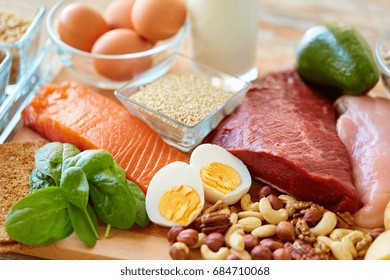Protein and their essential amino acids are the building blocks of our bodies. And, generally speaking, the more physically active you are, the more protein your body needs to build, maintain and repair muscle and other bodily tissues.
According to the Food and Drug Administration, the recommended
daily allowance of protein is 46 grams per day (gpd) for women age 19 and over,
and 56 gpd for men age 19 and over. It’s also suggested that up to 35% of your
daily calories come from protein.
As you increase regular physical activity, you will need to
increase your protein requirements, adding at least 20 more grams daily.
According to U.S. National Library of Medicine reports, protein intake for
active individuals can sometimes double depending on how you are exercising the
intensity, duration, frequency and types of exercise all make a difference.
All that protein helps optimize athletic performance in both
endurance and resistance training. Eating protein before and after workouts is
crucial to provide the energy you need to perform the activities and help
repair muscles.
When
just starting a fitness program, a balanced diet gives you the proper mix of
proteins and carbohydrates to fuel your workouts. When training intensifies
(heavy weightlifting, marathon or triathlon training), adding a protein
supplement can give your workout a boost and help repair the body afterward.
Some classes of protein that make you stay fit are bellow
- Whey protein: This milk-based protein is one of the most popular supplements. Whey protein isolate is fast-acting, easy to digest and is mostly pure protein. Whey protein concentrate contains higher amounts of carbohydrates and fats but, like isolate, is still fast-acting and contributes to the development of lean muscle.
- Casein protein: This milk protein digests more slowly and is usually recommended for overnight use, allowing the amino acids to trickle through your system while you sleep, helping aid in muscle recovery.
- Soy protein: Also fast-acting, soy protein has the added benefit of boosting nitric oxide levels, which increases blood flow to muscles. For those who are lactose intolerant, soy protein is a great alternative.


0 Comments